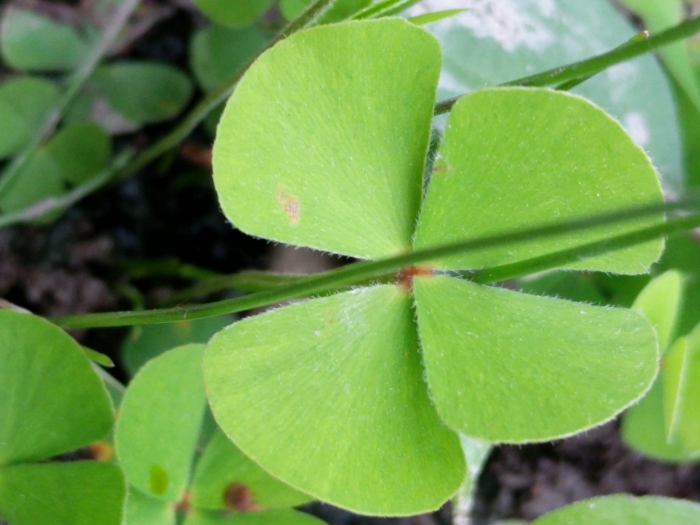Bigfoot Waterclover
(Marsilea macropoda)
Bigfoot Waterclover (Marsilea macropoda)
/
/

Alison Northup
CC BY 4.0
Image By:
Alison Northup
Recorded By:
Copyright:
CC BY 4.0
Copyright Notice:
Photo by: Alison Northup | License Type: CC BY 4.0 | License URL: http://creativecommons.org/licenses/by/4.0/ | Rights Holder: Alison Northup | Publisher: iNaturalist | Date Created: 2018-03-11T12:10:54-07:00 |



















Estimated Native Range
Summary
Marsilea macropoda, commonly known as Bigfoot Waterclover, is a perennial herb that can be deciduous or semi-deciduous depending on the climate. It is native to the wetland margins, pond edges, and slow-moving streams of Northeastern Mexico and Texas, often found in areas that are seasonally flooded. This plant typically grows to a height of 0.3-0.8 feet (0.09-0.2 meters) and spreads 0.7-2 feet (0.2-0.6 meters), forming a mat-like ground cover. The foliage resembles four-leaf clovers, and while it rarely flowers, when it does, the flowers are small and inconspicuous. Bigfoot Waterclover is valued for its lush green appearance and its ability to thrive in wet conditions.
In cultivation, Bigfoot Waterclover is used for aquatic gardens, pond margins, and as a ground cover in moist, shaded areas. It is adaptable to a range of light conditions, from full sun to full shade, but consistently moist soil is essential for its growth. It can be propagated by division or spores and is relatively low-maintenance once established. While it is not prone to serious pests or diseases, it can become invasive in ideal wetland conditions outside its native range. Gardeners should be mindful of its potential to spread when planting in areas adjacent to natural water bodies.CC BY-SA 4.0
In cultivation, Bigfoot Waterclover is used for aquatic gardens, pond margins, and as a ground cover in moist, shaded areas. It is adaptable to a range of light conditions, from full sun to full shade, but consistently moist soil is essential for its growth. It can be propagated by division or spores and is relatively low-maintenance once established. While it is not prone to serious pests or diseases, it can become invasive in ideal wetland conditions outside its native range. Gardeners should be mindful of its potential to spread when planting in areas adjacent to natural water bodies.CC BY-SA 4.0
Plant Description
- Plant Type: Herb
- Height: 0.3-0.8 feet
- Width: 0.7-2 feet
- Growth Rate: Moderate
- Flower Color: N/A
- Flowering Season: Non-Flowering
- Leaf Retention: Deciduous, Semi-Deciduous
Growth Requirements
- Sun: Part Shade, Full Shade, Full Sun
- Water: High, Medium
- Drainage: Slow
Common Uses
Butterfly Garden, Deer Resistant, Groundcover, Low Maintenance, Potted Plant, Water Garden
Natural Habitat
Wetland margins, pond edges, and slow-moving streams
Other Names
Common Names:
Scientific Names: , Marsilea macropoda, Marsilea macropus, Zalusianskya macropus, Zaluzianskia macropoda,
GBIF Accepted Name: Marsilea macropoda Engelm. ex A.Braun